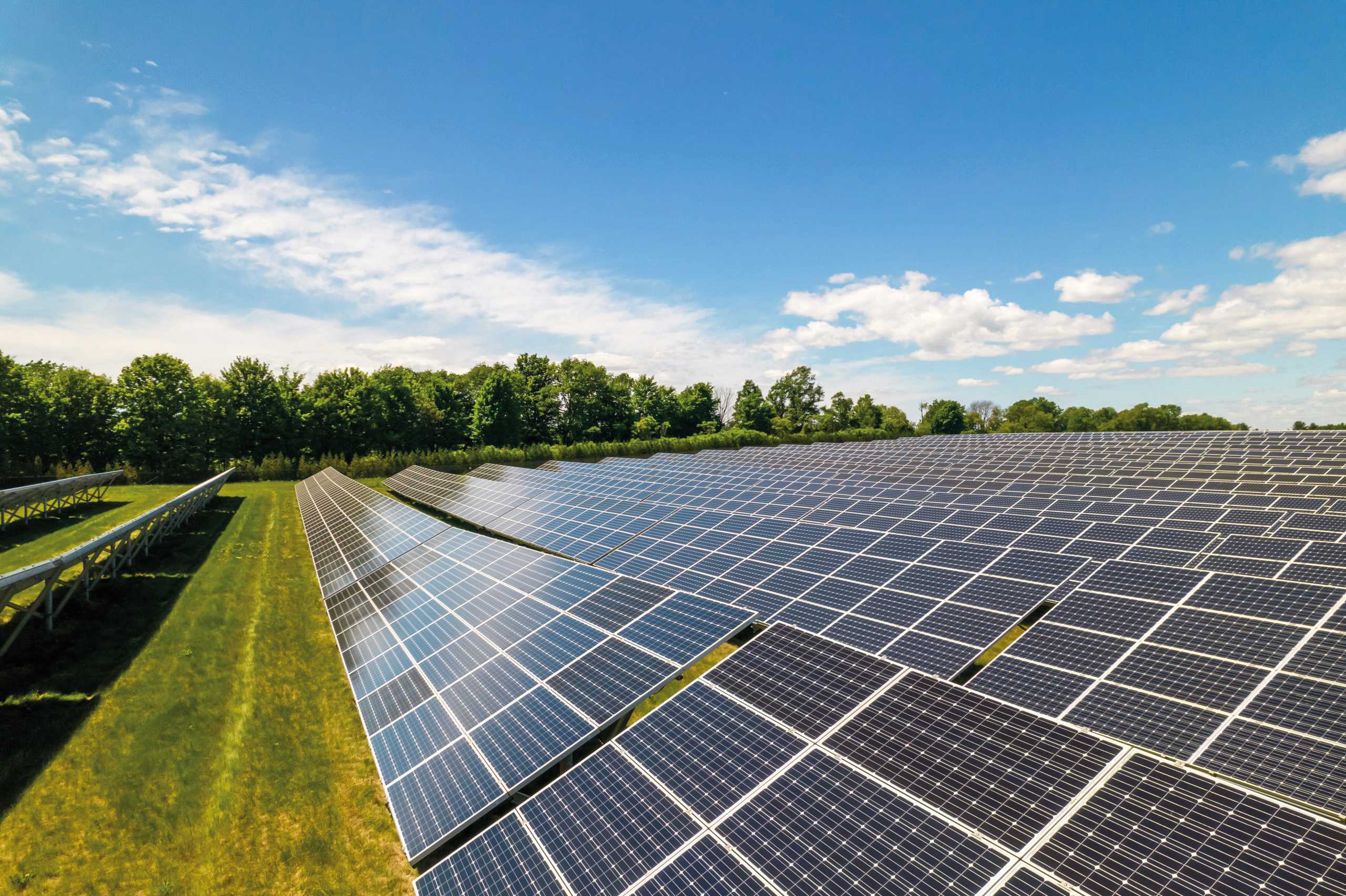
THE University of Manchester has signed a landmark new deal that will see up to 65% of its electricity demand supplied through a brand-new renewables project.
In a major move towards achieving its 2038 zero carbon ambitions, the University has partnered with leading UK clean energy company Enviromena to buy electricity generated from its brand-new solar farm based in Medebridge, Essex. Once complete, Medebridge Solar Farm will comprise 104,000 solar panels across 175 acres of low-grade agricultural land, the equivalent of around 70 football pitches. The contract that secures this investment, known as a Corporate Power Purchase Agreement (cPPA), commits the University to purchase 80% of Medebridge’s total annual generation capacity (58 GWh) for the next decade, reducing University carbon emissions by 12,000 t/co2 every year - enough to power 21,000 homes. Lee Barlow, Finance & Administration Manager, and Project Lead at The University of Manchester, said: “After nearly three years of rigorous procurement and negotiations, we are proud to announce this landmark agreement, which reinforces our commitment to sustainability whilst delivering best value to our students and stakeholders, in the form of price certainty and supply stability.”
Enviromena develops, builds, owns and operates renewable energy assets and currently manages over 300MW of renewables projects. In addition, Enviromena is currently working on a 3GW+ pipeline of renewable energy projects in the UK and Italy that will significantly decarbonise electricity networks, reduce emissions and support the global drive towards net zero. Chris Marsh, Enviromena’s Chief Executive Officer, added: “We’re delighted to partner with the University to support their zero carbon ambitions. In addition to reducing the University’s carbon emissions over the next 10 years, the site itself will benefit the local habitat over its useful life until mid-2060.” Construction of Medebridge commenced in April 2024, with energisation expected in autumn 2025. The University has set ambitious goals to reduce its environmental impact, in line with its core goal of social responsibility. In 2022 it ended investments in coal, oil and gas and reduced the carbon intensity of its investments by 37%.